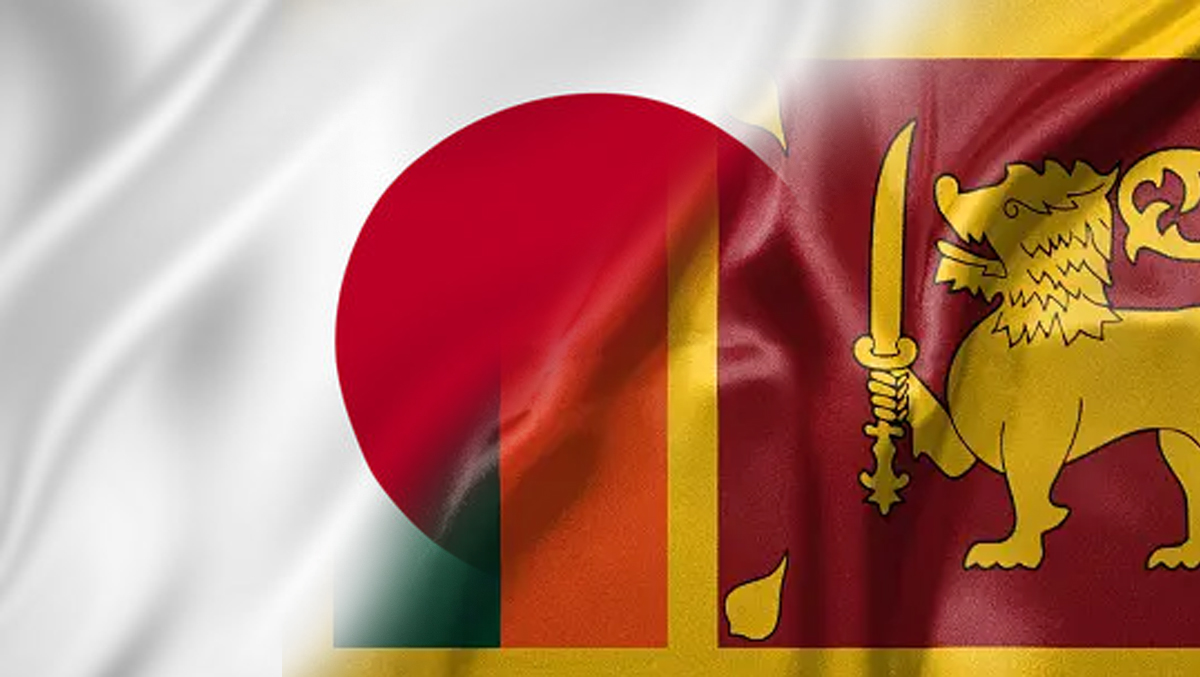The Japanese government today officially announced the release of funds for the resumption of development projects undertaken in Sri Lanka.
A special press conference to officially announce the release of funds for restarting the projects was held today (24) at the Auditorium of the Ministry of Finance.
The official announcement of Dr. TANAKA Akihiko, President of Japan International Cooperation Agency (JICA) on the resumption of the disbursement was handed over to Mr. K.M. Mahinda Siriwardana, Secretary to the Treasury and the Ministry of Finance, Economic Stabilization and National Policies, by Ms. IDE Yuri, Senior Representative of the JICA Sri Lanka Office.
Treasury Secretary Mahinda Siriwardana expressed his sincere gratitude on behalf of the Government of Sri Lanka to the Government of Japan for their pivotal role throughout the debt treatment process and being the foremost decision taker to refinance the ongoing infrastructure development projects, the Ministry of Finance, Economic Stabilization and National Policies said.
Japanese Gratitude to Sri Lanka

Sri Lanka is in debt crisis and people are suffering without basic needs. Japan the so called debt mediator trying to extort $1.5bn reserves from Sri Lanka over LRT contract. Is this the Japanese gratitude to Sri Lanka for protecting Japan from the divisional conquer by the allied nations in 1954?
Sri Lanka declared bankruptcy in April 2022. As of September 2023, it had $35.1bn in foreign debt, of which 19 percent was owed to China, 7 percent to Japan, and 5 percent to India, according to media reports. United Nations Development Programme survey conducted in 2022 and 2023 found that 55.7% of Sri Lanka’s population, or 12.34 million people, are vulnerable across various dimensions due to the economic crisis. Sri Lanka’s official reserves stood at $3.58 billion as of November 2023, according to the central bank.
Japan wants Sri Lanka to pay for LRT cancellation
Japan wants Sri Lanka to pay for the termination of a $1.5-billion Japanese-funded light rail project.
Japan’s Finance Minister, Suzuki Shunichi has told Opposition Leader Sajith Premadasa and a delegation of the Samagi Jana Balawegaya (SJB) that Sri Lanka must pay for the cancellation of the project in order to resume stalled projects.
SJB MP Dr. Harsha de Silva said that the general message conveyed by the Japanese Finance Minister was for Sri Lanka to complete debt restructuring as soon as possible, not to jeopardise the IMF program and repay due for LRT cancellation in order to resume stalled projects.
Former President Gotabaya Rajapaksa had ordered the termination of the $1.5-billion Japanese-funded light rail project, saying it is not a “cost-effective solution” for the congested capital Colombo.
Japanese technology including rolling stock was to be used on the rail system, which included 16 stations over 15.7 kilometres (9.8 miles).
Detailed planning and land acquisition for the project in Colombo, which has some of the worst traffic congestion in South Asia, had already been completed and initial construction was under way.
The Japanese loan carried an interest rate of 0.1 percent and was repayable over 40 years with a 12-year grace period. Japan had already funded sections of new expressways and a key bridge to reduce traffic congestion in and out of the capital.
How Sri Lanka helped Japan during crisis
Junius Richard Jayewardene protected Japan from the divisional conquer by the allied nations.
Enlarge this imageClick to see fullsize

Seventy years ago, in September 1951, the San Francisco Peace Treaty was signed and Japan was readmitted into the international community after World War II. The historic San Francisco Peace Conference with the participation of 51 nations was convened to determine the status of Japan in the post–World War II international system.
While a number of countries argued for strict terms and sanctions against Japan for its part in the War, the delegation from the then Ceylon, headed by then Finance Minister J.R. Jayewardene, argued for Japan’s independence and rejected war reparations. While stressing on peace, nonviolence and compassion and referring to the Buddha’s teachings in the Dhammapada, Jayewardene stated, “We do not intend to seek reparations (for damages caused to cultivations in Ceylon during WWII) for we believe in the words of the Great Teacher whose message has ennobled the lives of countless millions in Asia, that hatred ceases not by hatred but by love.”
Jayewardene’s defense of Japan and his momentous speech on September 6, 1951, at the conference received overwhelmingly positive attention. More significant was the subsequent impact. Not only did it help Japan’s cause of getting readmitted to the international community and avoiding severe sanctions, but it also earned Sri Lanka a true friend and long-standing Japanese support.
Seventy years hence, former Sri Lankan President Junius Richard Jayewardene’s speech is still remembered by the Japanese people with reverence and appreciation.
https://archives1.dailynews.lk/2021/10/01/features/260784/speech-shaped-world-history


















